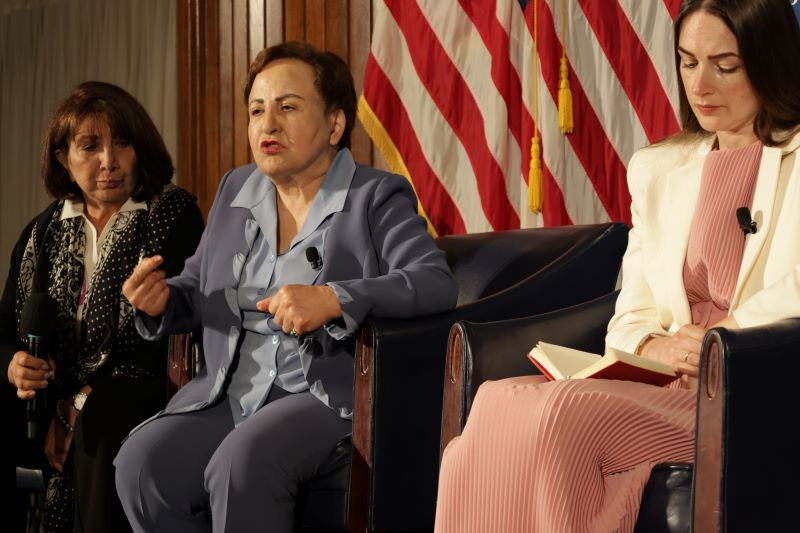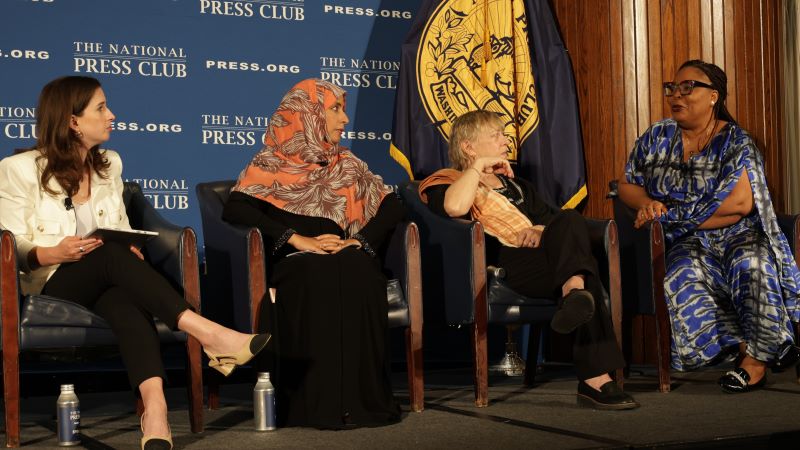Nobel laureates denounce global discrimination against women
Five Nobel Women Laureates denounced discrimination against women and called for an end to barriers that see women excluded and disregarded on a global scale at a National Press Club Headliners Luncheon Sept. 13.
Tawakkol Karman, journalist and the 2011 laureate from Yemen, spoke out against the injustice of discrimination against women which leaves them on the sidelines and deprives them of roles in making decisions in society.
“This is why we don’t see a lot of women in policymaker positions," she said. "This is why we see a lot of marginalized women everywhere,” she said.

“Bravery has no gender,” said Oleksandra Matviichuk, human rights lawyer and the 2022 laureate from Ukraine, highlighting the many and diverse ways in which women are showing leadership in Ukraine.
She said democracies allow women to choose their role in the family and society and said she hopes for freedom for women in Ukraine’s future.
“We want our daughters to never face a situation that they have to prove to someone that they are also human beings,” Matviichuk said. “I totally believe that we have to increase the voice of women not just in peacebuilding dialogue but in peacebuilding decision-making. Because it’s very easy to speak about politics. But it’s very hard to speak about people. And women can do it.”
Shirin Ebadi, former judge and the 2003 laureate from Iran, citing the events of Iran’s 1979 revolution, said discrimination against women affects everyone, including men and society as a whole.
“Oppression is always started against women,” she said. “When they want to start oppressing society, they start with women. But then later, men are oppressed as well, because oppression is contagious.”
She described how men urging women to accept oppression led to basic human rights being curtailed for all in 1979. “What they said was, ‘It’s not a big deal. It’s just a scarf. Go ahead and tolerate it,'” she said, adding that men soon lost their personal freedoms as well.

Ebadi also spoke on behalf of the women of Afghanistan, drawing attention to the Taliban rulers who forbid them from appearing in public without being totally covered or accompanied by a man. Noting that Afghan women are still standing up for their rights, she praised their spirit of resistance.
Leymah Gbowee, peace activist and the 2011 laureate from Liberia, and Jody Williams, peace advocate and the 1997 laureate from the United States, debated the intent behind the founding of the United Nations and shared differing views on what the U.N. has accomplished. The panelists also exchanged their opinions about the role and limitations of the U.N. Security Council
All the laureates called for women to be free from the barriers of discrimination, to be recognized for their ability to contribute to society and to be enabled to participate more in high-level global discussions.
